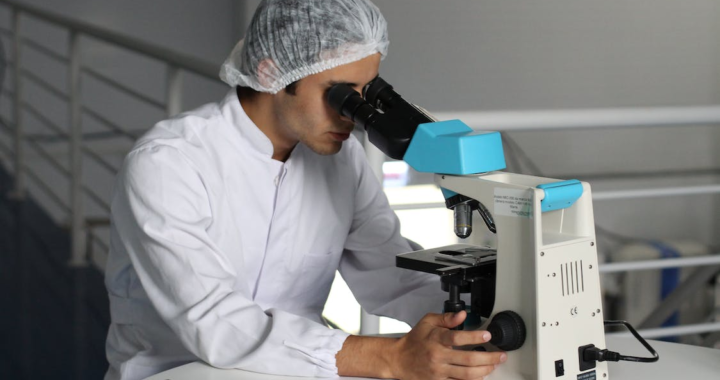Medical fraud poses a significant threat to the integrity of healthcare systems worldwide, jeopardizing financial stability, patient safety, and overall trust in the medical field. As the healthcare landscape becomes increasingly digitized, perpetrators of fraudulent activities have evolved, necessitating sophisticated methods to detect and prevent such malpractices.
Amid this challenge, forensic computer analysis emerges as a pivotal tool in uncovering, investigating, and thwarting instances of medical fraud. This guide explores the critical role played by forensic computer analysis in combating medical fraud. By harnessing digital evidence and cutting-edge technology, forensic experts can delve into complex data trails, identifying irregularities, patterns, and anomalies that signal potential fraudulent activities within healthcare systems.
Understanding the importance and application of forensic computer analysis is crucial in safeguarding the integrity of healthcare, protecting patients, and preserving the trust essential for the industry’s sustainable growth.
For those seeking the services of forensic computer analysts in Florida, visit Eclipse Forensics.
Understanding Medical Fraud
Medical fraud encompasses a range of illicit activities that exploit vulnerabilities in healthcare systems for financial gain. These fraudulent practices can take various forms, including billing scams, identity theft, unnecessary procedures, kickbacks, and prescription drug fraud. Billing scams involve manipulating invoices by overcharging, falsely coding, or billing for services not provided.
Identity theft occurs when personal information is used without consent to obtain medical services or prescriptions illegally. Unnecessary procedures involve performing treatments or tests that are medically unwarranted. Kickbacks occur when incentives are exchanged for patient referrals or specific treatments.
Common Techniques
Fraudsters employ several techniques to execute medical fraud schemes. These include falsifying patient records, submitting duplicate claims, upcoding (billing for a more expensive service than provided), phantom billing (billing for services never performed), and unbundling (billing separately for bundled services). Additionally, identity theft, prescription drug diversion, and illegal billing for non-covered services are prevalent tactics used to defraud healthcare systems.
Impact of Medical Fraud
Medical fraud exerts detrimental effects on healthcare systems and patients. It leads to substantial financial losses, inflates healthcare costs, and drains resources. This not only undermines the financial stability of healthcare institutions but also restricts access to necessary medical services for genuine patients. Moreover, medical fraud erodes trust in healthcare providers, compromises patient safety, and diminishes the quality of care. Patients may suffer physical harm due to unnecessary treatments or delayed access to genuine care as a result of diverted resources.
Role of Forensic Computer Analysis
Forensic computer analysis is a specialized discipline involving the systematic examination of digital devices, data, and networks to uncover evidence, identify irregularities, and reconstruct events. It employs advanced techniques and tools to collect, preserve, analyze, and interpret digital evidence crucial for investigations. This process ensures the integrity of evidence, complying with legal standards, and facilitating accurate conclusions.
Application of Forensic Computer Analysis
In combating medical fraud, forensic computer analysis plays a pivotal role in uncovering intricate trails of digital footprints left by fraudulent activities. It involves scrutinizing electronic health records, billing systems, databases, emails, and other digital assets within healthcare networks. Forensic analysts employ data mining, pattern recognition, and anomaly detection techniques to identify discrepancies, irregular billing patterns, unauthorized access, or alterations in records. By reconstructing digital timelines and correlating data points, forensic experts can pinpoint fraudulent transactions, identify perpetrators, and establish the modus operandi behind fraudulent schemes.

Importance of Digital Evidence
Digital evidence obtained through forensic computer analysis serves as a cornerstone in detecting and preventing medical fraud. It provides concrete, timestamped data that serves as a reliable trail of events. Digital footprints reveal unauthorized access, alterations, or discrepancies in records that may indicate fraudulent activities.
By leveraging digital evidence, investigators can strengthen their cases, supporting legal actions against perpetrators. Additionally, the proactive use of forensic computer analysis aids in identifying vulnerabilities within healthcare systems, enabling institutions to implement robust security measures, mitigate risks, and prevent future fraudulent attempts, safeguarding the integrity of healthcare data and services.
The integration of forensic computer analysis in combating medical fraud is instrumental in unraveling complex schemes, preserving data integrity, and fortifying healthcare systems against fraudulent activities.
Recommended Read: Computer Forensics and Network Forensics: What’s the Difference
Benefits of Utilizing Forensic Computer Analysis
Forensic computer analysis offers a host of benefits ranging from increased accuracy and efficiency to identifying trends and patterns.
Increased Accuracy
Forensic computer analysis offers a distinct advantage in medical fraud investigations by enhancing the accuracy and efficiency of detecting fraudulent activities within healthcare systems. Through meticulous examination of digital records, forensic experts can pinpoint discrepancies, anomalies, and irregularities that might indicate potential fraudulent behavior.
The use of specialized software and techniques enables the identification of subtle patterns or inconsistencies that might evade traditional scrutiny. This precision leads to a more targeted focus on suspicious transactions or activities, streamlining the investigative process.
Improved Efficiency
Forensic computer analysis significantly improves the efficiency of investigations. By automating data analysis and employing advanced algorithms, investigators can swiftly process vast amounts of digital information. This expedites the identification of fraudulent patterns, reducing the time required to detect irregularities within healthcare databases, billing systems, or electronic health records. The accelerated detection of fraudulent activities allows for prompt intervention, minimizing financial losses and mitigating potential harm to patients or the healthcare system.
Identifying Patterns and Trends
Digital evidence obtained through forensic computer analysis serves as a goldmine of information for identifying patterns and trends in medical fraud. By analyzing large datasets and correlating digital footprints, investigators can uncover recurring patterns indicative of fraudulent behavior. These patterns might include unusual billing sequences, frequent alterations in records, or irregular access patterns.
Furthermore, the analysis of digital evidence allows for the identification of evolving trends and modus operandi employed by fraudsters. Understanding these trends helps healthcare organizations proactively fortify their defenses against emerging fraudulent schemes.
By leveraging this insight, institutions can implement targeted preventive measures, enhance fraud detection systems, and educate staff to recognize and thwart potential fraud attempts effectively. This proactive approach aids in staying ahead of evolving fraud tactics, safeguarding healthcare systems, and preserving patient trust.
Techniques and Tools
Forensic computer analysis leverages a suite of specialized software and tools designed to extract, examine, and interpret digital evidence crucial in unraveling medical fraud. Tools such as EnCase, FTK (Forensic Toolkit), and X-Ways Forensics facilitate the acquisition and examination of data from various digital sources. These tools enable forensic experts to access and analyze data stored on computers, servers, mobile devices, and cloud platforms while maintaining data integrity and preserving evidentiary value.
Additionally, data recovery software such as Recuva or PhotoRec aids in retrieving deleted or corrupted files, which may contain critical evidence in medical fraud investigations. Furthermore, specialized tools for metadata analysis, encryption detection, and timeline reconstruction are employed to provide comprehensive insights into digital activities and identify fraudulent actions.
Digital Forensic Methods
In medical fraud investigations, forensic experts utilize specific digital forensic methodologies tailored to uncover fraudulent activities within healthcare systems. These methods involve scrutinizing electronic health records, billing systems, prescription databases, and communication networks. They employ data mining techniques to analyze large volumes of information, seeking irregular patterns, discrepancies, or anomalies that may indicate fraudulent behavior.
Moreover, forensic computer analysts apply advanced data correlation methods to establish connections between seemingly disparate pieces of digital evidence. This approach assists in reconstructing timelines and identifying unauthorized access, alterations, or suspicious transactions.
The integration of machine learning algorithms and artificial intelligence aids in automating analysis processes, enabling the identification of complex fraud schemes that might evade traditional investigative methods. Ultimately, these specialized digital forensic methods empower investigators to uncover and decipher intricate fraudulent activities within healthcare systems, strengthening efforts to combat medical fraud effectively.
In conclusion, the pivotal role of forensic computer analysis in combatting medical fraud cannot be overstated. Its application in uncovering intricate digital trails, identifying fraudulent patterns, and fortifying healthcare systems against evolving fraud tactics is indispensable. The precision, efficiency, and proactive insights garnered through forensic analysis serve as a powerful weapon against fraudulent activities, preserving the integrity of healthcare and ensuring patient well-being.
Recommended Read: 5 Proactive Investigation Techniques in Computer Forensics

Reach Out to Eclipse Forensics!
For comprehensive forensic computer analysis services, consider Eclipse Forensics. As certified users of FTK and specializing in computer forensics, our expertise in deciphering digital evidence is unparalleled. Based in Florida, Eclipse Forensics offers a spectrum of services, including forensic video and audio analysis.
Whether investigating medical fraud or addressing other digital forensic needs, Eclipse Forensics stands as a trusted partner, providing thorough, reliable, and expert analysis to support legal proceedings and safeguard against digital malpractices. Contact Eclipse Forensics today to fortify your digital defenses and protect your organization’s integrity.

